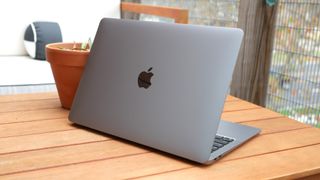MacBook Air vs. MacBook Pro: Which Mac should you buy in 2024?
Here's how to decide between the MacBook Air vs. MacBook Pro
You've decided you want a MacBook, but the question of "MacBook Air vs. MacBook Pro?" remains. If we walk through the options together, I can help you make the right choice for your needs. The current Apple laptop lineup includes 13.6-inch and 15.3-inch MacBook Airs and two flavors of MacBook Pro: 14.2 inches and 16.2 inches.
The Air lineup offers the M2 or M3 chipset, while the Apple M3, M3 Pro, or M3 Max power the MacBook Pro 14 and 16. Only the Pro models offer the more powerful "Pro" or "Max" chipsets, one of the most apparent differences between the Air and Pro MacBooks. The base MacBook Pro 14 blurs these lines with its standard M3 chip. Apple's current lineup has no duds, so whether you go with MacBook Air or MacBook Pro, there are no wrong choices; you must determine which best meets your needs.
While the 13-inch MacBook Air M3 claims to be our top recommendation for most people thanks to improved performance and battery life, the 13-inch MacBook M2 Air is still around $100 cheaper (often more from retailers). Depending on your needs, it remains a strong option for those who want to buy a new MacBook as affordably as possible.
So follow along, and I’ll help you decide which Apple laptop is right for you by comparing price, features, performance, battery life, and more. By the end of this guide, we'll settle on whether a MacBook Air or MacBook Pro is suitable for you to spend your hard-earned money on.
MacBook Air vs. MacBook Pro: Specs compared
| Row 0 - Cell 0 | Best for most | Best value | Big screen value | Portable power | Peak performance |
| Row 1 - Cell 0 | MacBook Air 13 (M3) | MacBook Air 13 (M2) | MacBook Air 15 (M3) | MacBook Pro 14-inch | MacBook Pro 16-inch |
| Price | $1,099 | $999 | $1,299 | $1,999 | $2,499 |
| CPU | M3 | M2 | M3 | M3, M3 Pro or M3 Max | M3 Pro or M3 Max |
| RAM | Up to 24GB | Up to 24GB | Up to 24GB | Up to 128GB | up to 128GB |
| Display | 13.6 inches (2560 x 1600) | 13.6 inches (2560 x 1600) | 15.3 inches (2880 x 1864) | 14.2 inches (3024 x 1964), 120Hz | 16.2 inches (3456 x 2234), 120Hz |
| Ports | 2 Thunderbolt 3/USB 4, MagSafe, headphone | 2 Thunderbolt 3/USB 4, Magsafe, headphone | 2 Thunderbolt 3/USB4, headphone | 3 Thunderbolt 4, HDMI, SDXC card, headphone | 4 Thunderbolt 3, headphone |
| Graphics | M3 | M2 | M3 | M3, M3 Pro or M3 Max | M3 Pro or M3 Max |
| Storage | up to 2TB | up to 2TB | Up to 2TB | Up to 8TB | up to 8TB |
| Battery Life (hrs) | 15:13 (tested) | 14:06 (tested) | 14:59 (tested) | 17:16 (tested) | 18:05 (tested) |
| Security | Touch ID | Touch ID | Touch ID | Touch ID | Touch ID |
| Size | 11.97 x 8.46 x 0.44 inches | 11.97 x 8.46 x 0.44 inches | 13.40 x 9.53 x 0.45 inches | 12.3 x 8.7 x 0.6 inches | 14 x 9.8 x 0.66 inches |
| Weight | 2.7 pounds | 2.7 pounds | 3.3 pounds | 3.5 pounds | 4.8 pounds |
The Quick List
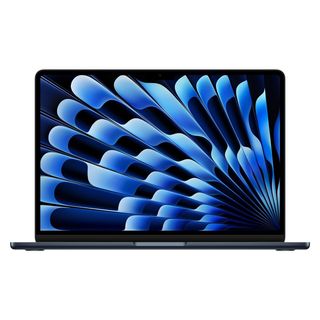
The MacBook most people should buy
The MacBook Air M3 is the MacBook most people should buy right now. Its new M3 chip gives it enough performance for most users. Combine that with over 15 hours of battery life and a bright Retina display, and it's an easy pick.
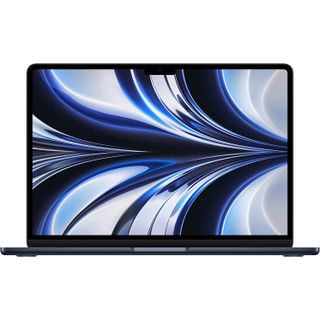
The best budget MacBook
In 2024, if you are looking to buy a MacBook affordably, look no further than the MacBook Air M2. It features Apple's current design, 14 hours of battery life, solid performance, a comfortable keyboard, and the always-popular MagSafe charging.
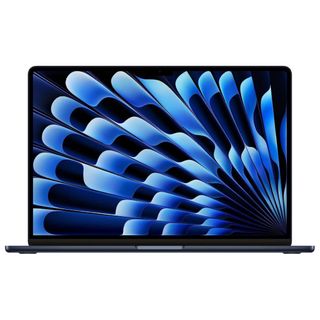
The best affordable big-screen MacBook
The MacBook Air 15 filled a gap in Apple's laptop lineup: a big screen that doesn't cost $2,500+. Sure, it's just an M3 Air with a bigger display, but that's a perfect laptop for many people.
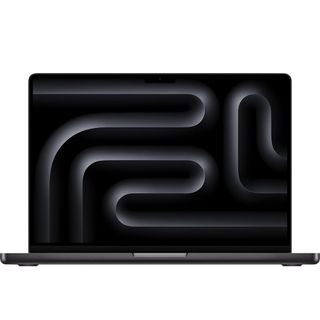
Best MacBook for portable performance
Whether you’re editing photos or videos, creating music, or working on a massive spreadsheet, the MacBook Pro 14 is the way to go. The M3's power and endurance are off the charts.
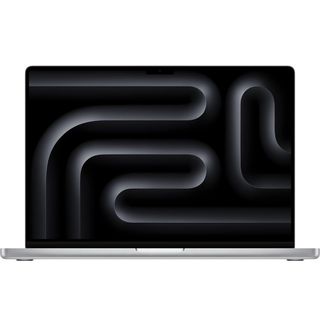
Best MacBook for peak performance
The MacBook Pro 16 with M3 Max can handle any task. Whether it's the larger display, higher peak performance, or four extra hours of battery life, the Pro 16 earns its premium price.
MacBook Air (13-inch, M3): Best for most people





Specifications
Reasons to buy
Reasons to avoid
Pros: While the 13-inch MacBook Air M3 looks no different from its predecessor outwardly, the changes inside, thanks to that new M3 chip, help make it the best MacBook for most people right now.
The MacBook Air's 13.6-inch display is one of the brightest laptops around, and True Tone also ensures excellent color accuracy, but the vibrancy falls short of some of the OLED competition. Rumors of Apple moving to OLED in the future abound, but not yet.
Like its predecessor, the MacBook Air M3 is one of the thinnest laptops at only 0.4 inches. However, unlike many ultraportable laptops, it can keep up with an impressive workload thanks to the M3 chip. Whether it was our benchmarks or real-world usage, the Air M3 was up for any task.
Stay in the know with Laptop Mag
Get our in-depth reviews, helpful tips, great deals, and the biggest news stories delivered to your inbox.
Looking at the benchmarks, the MacBook Air M3 scored 12,087 on Geekbench 6.2, well above the category average. Our Handbrake video transcoding test took 7 minutes and 54 seconds to transcode a 4K video to 1080p. Again, this beats the average, but it's worth noting that the Intel Core Ultra-powered competition is passing Apple here. Finally, Apple corrected the SSD read/write performance of the Air M2, jumping from 2,800.1/2,210.6MBps on the M2 to 3,030.7/3,058.8MBps with the M3.
All that performance prowess doesn't hurt its battery life, either. If finding an outlet can be a challenge during your day, never fear: The Air M3 powered through over 15 hours of battery life testing in our lab.
If that’s not enough, you also get a 1080p webcam with Apple's latest software tricks helping to boost the hardware to higher heights.
Cons: So what are the downsides? If you have a lot of peripherals, the pair of Thunderbolt/USB-C ports may be challenging, but at least you have MagSafe 3 to keep both ports free while charging.
The 13-inch MacBook Air M3 isn't cheap, starting at $1,099, but it remains a solid value. You may want to pay the extra $200 for 16GB of RAM, though. Multitaskers will appreciate the extra performance headroom.
Need more screen real estate? Look no further than the 15-inch MacBook Air M3. It mirrors all of the strengths of its smaller sibling but with a larger 15.3-inch display.
See our full 13-inch MacBook Air M3 review.
See our full 15-inch MacBook Air M3 review.
MacBook Air (13-inch, M2): The sub-$1,000 MacBook





Specifications
Reasons to buy
Reasons to avoid
Pros: The M2 MacBook Air is compelling. The laptop broke from the old wedge design for a look that put it squarely in MacBook Pro territory. But staying true to its name, the Air is 20 percent smaller than its predecessor in volume. You even get some snazzy new colors to choose from this time around. Apple has also added a few other new goodies, such as a 1080p webcam, a new speaker setup, and a bigger display.
However, the show's real star is Apple’s M2 chip, which offers great performance for an ultraportable laptop. It’s faster and more powerful than the previous model and is ideal for anyone looking for a super-light workhorse. It lasted over 14 hours on our battery test and has fast charging.
Bigger screen, smaller bezels — that’s the name of the game for the M2 MacBook Air. The laptop boasts a 13.6-inch, 2560 x 1664 Liquid Retina display, compared to the previous version’s 13.3 inches. And when it comes to displays, more often than not, bigger is always better. As expected, the M2’s screen is an explosion of color with sharp details.
The M2 Air also performed great during our synthetic benchmarks. For example, when we ran Geekbench 5.4, the notebook hit 8,919, decimating the 6.054 premium laptop average and the Slim 7 Carbon’s (AMD Ryzen 7 5800 CPU) 6,241. On the Handbrake test, the Air M2 transcoded a 4K video to 1080p in 7 minutes and 52 seconds. That score roasted the 10-minute average and the XPS 13 (Intel Core i7-1185G CPU) and Spectre x360 (Intel Core i7-1165G7 CPU), which had times of 18:33 and 18:39, respectively. The Slim 7 Carbon came the closest at 8:51, more than a minute slower. Weighing a slight 2.7 pounds and measuring 12 x 8.5 x 0.4 inches, the MacBook Air can easily slide into any medium-sized purse, messenger bag, or backpack.
Cons: Apple’s lightest laptop has always been light on ports, which remains true with the M2 Air. Although the MagSafe charger made a triumphant return, you still only get a pair of Thunderbolt 3/USB 4 ports and a headset jack to work with, so you might need a dongle or two.
See our full MacBook Air M2 review.
MacBook Air (15-inch, M3): Big screen on a budget





Specifications
Reasons to buy
Reasons to avoid
Pros: Getting that big 15.3-inch display on a MacBook for as low as $1,299 is hard to pass up, considering that for years, that would cost you at least $2,499. While it lacks the 120Hz refresh rate of the Pro models, Apple didn't skimp on the display, as it offers an excellent 482 nits of brightness in our testing.
At 3.3 pounds and just 0.45 inches thick, it's a tempting option for business travelers or college students who value a larger laptop that won't weigh down their laptop bag. Thanks to 15 hours and 3 minutes of battery life in our testing, it will also tick another box for those buyers.
It features the same M3 chip as the 13-inch Air. It delivers nearly identical performance results on many tasks, although sustained tasks like video editing tips in favor of the 15-inch model, presumably due to improved thermal performance.
Cons: Not many. The port situation is slightly irritating as it features the same pair of Thunderbolt 3/USB 4 ports, MagSafe charger, and headphone/mic jack as the much smaller MacBook Air 13-inch. However, most of us who need more ports have long ago added a USB-C hub or laptop docking station to our assortment of gear.
See our full MacBook Air 15-inch M3 review.
MacBook Pro (14-inch): Best for creative pros on the go





Specifications
Reasons to buy
Reasons to avoid
Pros: The MacBook Pro 14 M3 arrived this fall as a new, more affordable option for the 14-inch MacBook Pro, starting at $1,599. No, that's not cheap, but it's $400 less than the previous $1,999 starting point, which is still what the M3 Pro model will set you back. For most users, the base M3 will get the job done, but if time is money for you, then the M3 Pro and M3 Max processors Apple are among the fastest, most power-efficient chips ever built for portable computing.
The other performance specs are just as impressive. While the base model will be more than enough for most users, you can spec the M3 Max configuration up to 128GB of RAM and an 8TB SSD. Battery life is tested at 17 hours and 03 minutes.
Moreover, that redesign from 2021 still feels fresh with the 14.2-inch, 3024 x 1964-pixel Liquid Retina XDR mini-LED display with a 120Hz refresh rate. This panel is one of the brightest laptop screens ever (at 1,600 nits of peak luminance) and the most vivid outside of OLED panels.
At 12.3 inches x 8.7 x 0.6 inches and 3.5 pounds, the 14-inch MacBook Pro remains portable despite the power it packs underneath the hood.
Some other nice features include a 1080p webcam, Touch ID, a six-speaker setup, and a keyboard without a Touch Bar.
Cons: So, what's wrong with the laptop? Well, there's that notch. While you do adjust to it quickly, we still don't love that design decision, particularly since it doesn't come with Face ID. If you are thinking these are minor complaints then you are absolutely right, this is an outstanding laptop that belongs on the short list for anyone with portability and performance in mind.
See our full MacBook Pro 14 2023 review
MacBook Pro 16-inch: Best for peak performance





Specifications
Reasons to buy
Reasons to avoid
Pros: This MacBook Pro has everything we love about the 14-inch MacBook Pro but with a large 16-inch display. It has the same M3 Pro and M3 Max chips along with up to a ludicrous 128GB of memory and up to an 8TB SSD. Battery life is even slightly better, at 18 hours and 5 minutes in our testing. Given the performance that is almost unbelievable, honestly, it seems like Apple may have created a pocket dimension that houses some additional battery in this thing.
Cons: Except for that battery life and the display size, you can get everything in the 16-inch MacBook Pro in the 14-inch model for $500 less. If you need the larger panel, then get this 16-inch MacBook Pro. It probably won't be worth the price trade-off if you don't.
Also, at 14 x 9.8 x 0.66 inches and 4.7 pounds, the 16-inch MacBook Pro is considerably larger than the 14-inch model, so if you regularly tote your laptop around, that's worth considering as well.
See our full MacBook Pro 16-inch 2023
To find out more about how much longer Apple will keep your MacBook healthy, read our comprehensive Apple Warranty Check guide.
How We Test MacBooks
We put MacBooks through extensive benchmark testing—both synthetic and real-world—before they are handed to our reviewers. We evaluate everything from speed and battery life to display brightness, speaker volume, and system heat.
We use a Klein K10 colorimeter to detect a laptop's display's brightness and sRGB color gamut. For performance benchmarking, we run the laptop through a gauntlet of benchmarks, including Geekbench 6, BlackMagic Disk Speed Test, and PugetBench for Adobe CC.
We task the laptop to convert a 4K video to 1080p resolution to determine real-world performance. Our real-world graphics tests on MacBooks include Borderlands 3, Shadow of the Tomb Raider, Sid Meier's Civilization VI: Gathering Storm, and Total War: Warhammer III in 1080p and native resolution settings.
We also run heat tests by playing a 15-minute full-screen video, and our proprietary Laptop Mag Battery Test consists of continuous web surfing over wifi at 150 nits of brightness. Anything over 10 hours is considered strong battery life, a standard every current Macbook easily surpasses. Of course, these tests are complemented with hands-on testing from our reviewers.
Why Trust Laptop Mag
Laptop Mag reviews over a hundred laptops yearly, from paperweight ultralights to everyday workhorses to lumbering gaming notebooks that scorch the frame rates of even the hottest AAA games. We're not just experts in the laptop field, as we go one step further by meticulously testing smartphones, tablets, headphones, PC accessories, software, and even the latest in gaming.
We are 100 percent independent and have decades of experience to help you buy with confidence. In fact, Laptop Mag has been testing and reviewing products for three decades and continues to deliver trustworthy reviews you can rely on.
Our experienced team of writers and editors scour the available information about the laptop and put it through its paces to determine which is best for you. But before they start, the testing team subjects each system to a rigorous regimen of synthetic and real-world tests to see how a system handles the type of work and games you’re most likely to throw at it.
One of the world's largest technology publishers, Future Publishing, enforces our editorial trustworthiness. As a company, we have unrivaled experience across every tech sector — and we're the group's specialist for all things mobile tech.
Sean Riley has been covering tech professionally for over a decade now. Most of that time was as a freelancer covering varied topics including phones, wearables, tablets, smart home devices, laptops, AR, VR, mobile payments, fintech, and more. Sean is the resident mobile expert at Laptop Mag, specializing in phones and wearables, you'll find plenty of news, reviews, how-to, and opinion pieces on these subjects from him here. But Laptop Mag has also proven a perfect fit for that broad range of interests with reviews and news on the latest laptops, VR games, and computer accessories along with coverage on everything from NFTs to cybersecurity and more.
